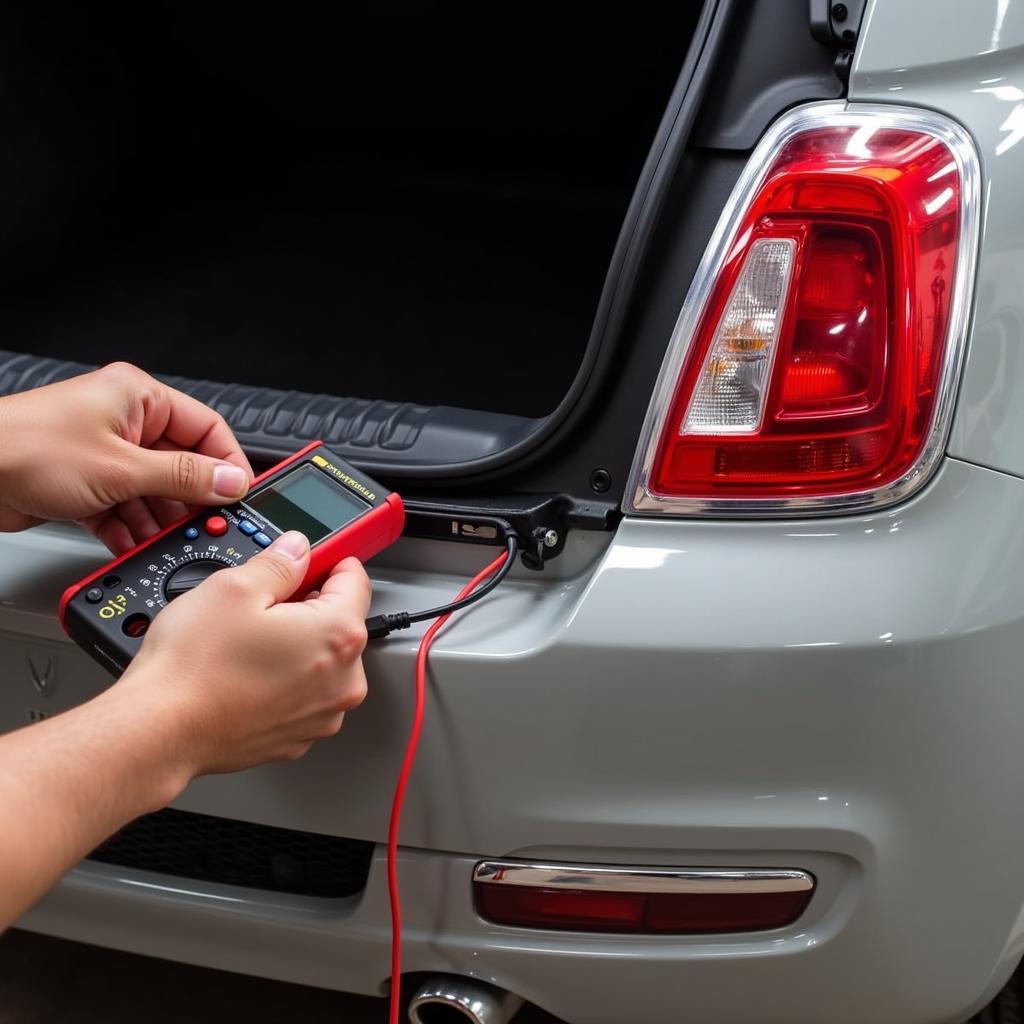Cold weather can significantly impact battery performance, especially in vehicles. From sluggish starts to reduced lifespan, understanding how cold temperatures affect your car battery is crucial for maintaining your vehicle and avoiding unexpected breakdowns. This article delves into the science behind why cold weather is tough on batteries and provides practical tips to help you protect your car’s power source during the chilly months.
How Cold Weather Affects Battery Performance
Low temperatures can slow down the chemical reactions within a battery, reducing its ability to deliver power. This is particularly noticeable when starting your car on a frigid morning. The engine requires a significant surge of electricity to crank, and a cold-weakened battery might struggle to provide it. Think of it like molasses in winter – everything moves slower and thicker.
The Science Behind the Chill
The electrochemical reactions inside a lead-acid battery, the type commonly found in cars, rely on the movement of ions. These ions carry the electrical charge. As temperatures drop, the electrolyte, the fluid inside the battery, becomes more viscous, hindering ion movement. This reduced mobility translates to a decrease in the battery’s overall capacity and cranking power.
Protecting Your Battery in Winter
Fortunately, there are several steps you can take to mitigate the negative effects of cold weather on your battery. These preventative measures can help ensure reliable starts and prolong the life of your battery.
- Battery Testing: Have your battery tested regularly, especially before winter sets in. A professional can assess its health and identify potential weaknesses.
- Clean Connections: Corrosion on battery terminals can impede current flow. Clean them with a wire brush and a baking soda solution.
- Proper Charging: Ensure your car’s charging system is functioning correctly. A faulty alternator can prevent the battery from fully recharging.
- Insulation: Consider using a battery blanket or insulation to help maintain a warmer temperature. This can be particularly helpful in extremely cold climates.
Why is my car battery dying faster in the cold?
The cold slows down the chemical reactions within the battery, reducing its overall capacity and making it more difficult to deliver the power needed, especially for starting your engine. This can lead to a quicker discharge, making it seem like your battery is dying faster.
Remote Diagnostics and Software Solutions
Modern vehicles are increasingly reliant on complex electronic systems. Cold weather can also affect these systems, potentially leading to diagnostic trouble codes (DTCs) and other issues. Remote diagnostics and software updates can be invaluable tools in diagnosing and resolving these problems quickly and efficiently.
“In my experience, remote diagnostics have revolutionized how we address vehicle issues, especially during harsh winters. We can quickly pinpoint problems and even implement software fixes without the customer needing to bring their car in,” says John Smith, Senior Automotive Electrical Engineer at Advanced Auto Solutions.
Does extreme cold permanently damage car batteries?
While extreme cold can significantly stress a battery and shorten its lifespan, it doesn’t always cause permanent damage. If the battery is well-maintained and properly charged, it can often recover once temperatures rise. However, repeated exposure to extreme cold can eventually lead to irreversible damage.
“Regular maintenance is key. Just like you wouldn’t neglect your engine oil, your battery needs attention too. Preventative care can save you headaches and expensive repairs down the road,” adds Maria Garcia, Lead Technician at AutoTech Solutions.
Conclusion
Is cold weather bad for batteries? Absolutely. Understanding the impact of cold temperatures on your car battery is essential for preventing problems and ensuring reliable performance throughout the winter months. By following the advice outlined in this article and utilizing modern diagnostic and software solutions, you can keep your car running smoothly, even in the most frigid conditions.
FAQ
-
How often should I have my car battery tested? Ideally, have your battery tested twice a year, once in the fall and once in the spring.
-
What is the average lifespan of a car battery? Most car batteries last between 3 and 5 years.
-
Can I jump-start my car if the battery is cold? Yes, but be sure to follow safety precautions and consult your owner’s manual.
-
Are there different types of batteries better suited for cold weather? Yes, some batteries, like AGM (Absorbent Glass Mat) batteries, are designed to perform better in extreme temperatures.
-
What should I do if my car won’t start in cold weather? First, try jump-starting the car. If that doesn’t work, you may need to have your battery or charging system checked by a professional.
-
How can I tell if my car battery is dying? Signs of a dying battery include slow cranking, dimming headlights, and electrical issues.
-
Does parking in a garage help protect my car battery in the cold? Yes, parking in a garage can help maintain a slightly warmer temperature around the battery, improving its performance.


